The Long, Hot Summer
As I have never read one of his books, I don't know why William Faulkner's novels were (and are) considered unfilmable. In writing the screenplay for The Long, Hot Summer, Irving Ravetch and Harriet Frank Jr didn't just tackle one of his books, but two of his short stories, 'Barn Burning' and 'The Spotted Horses' with his novel, The Hamlet, making up most of the material.
Set in the early 20th century, the film begins with Ben Quick travelling along the Mississippi on a barge as he is keen to escape his father's reputation as a barn burner, someone who will destroy another man's property for petty revenge. Unfortunately for Quick, the smears have not only affected his father, but the entire family name so, wherever he goes, Quick will be met with suspicion and hostility. Finding his way to a road and trying to hitchhike somewhere, anywhere, Quick is picked up by two attractive young women in a convertible travelling to Frenchman's Bend. Sure enough, his name raises hackles and, after enquiring as to the best way to earn a living in the town, he is pointed in the direction of Will Varner, one of the most powerful men in the state.
Unbeknownst to Quick, the two women he caught a ride into town with were Varner's daughter-in-law, Eula and his unmarried daughter, Clara. Everything was all very friendly in the car but, once they find out his surname, the two women, Clara in particular, want nothing to do with him. Will Varner sees something in the hotheaded young man that he likes and is pleased when he learns that his son, Jody, has sold Quick one of the estate's farms, a piece of land thought worthless by everyone due to the barren soil and skinny horses. Having fenced off his piece of land, Quick takes all the horses into town and sells them for $30 a head on the condition that, once they are all sold, the owners go in the pen and fetch their own horse. Predictably enough, a stampede ensues with the horses running everywhere, including into a boarding house and a saloon, but Quick doesn't care as he has the cash.
Although the way he earned the money wasn't particularly scrupulous, Varner is impressed by Quick's endeavour and enterprise and sees him as a potential husband for Clara to deliver some grandchildren so that the Varner name will live on. Varner doesn't really care that Clara is currently being suited by Alan Stewart, a man from money but with no ambition or drive, so Will certainly doesn't want him for a son-in-law. This leads to him 'promoting' Quick to be a clerk in his general store, much to the chagrin of Jody, who feels that his position within the family has been undermined. To compound matters, Quick is then invited to leave the ramshackle farm in which he has been living and move into the opulent family home.
Not only do sparks fly between Quick and Jody, but between him and Clara and, eventually, Quick and Will Varner who is having trouble of his own as his widowed mistress, Minnie Littlejohn, wants him to make an honest woman of her and is being none too subtle with her wedding hints.
The Long, Hot Summer was entered into the 1958 Cannes Film Festival, where Paul Newman won the Best Actor award for his portrayal of Ben Quick and it was really the film that brought him to people's attention. From there, the only way was up and he would team up with director Martin Ritt and husband-and-wife screenwriting team Irving Ravetch and Harriet Frank Jr again on Hud (1961) and Hombre (1967).
Aside from Newman, the other cast members are all superb with Orson Welles giving a suitably powerful and dominating performance, overacting slightly, as Will Varner, a man 20 years older than Welles was at that point but the make-up job and Welles' own weight makes him look like a man of 61. As she seems to do so often, Angela Lansbury also plays someone older than her years in the rather smaller role of Minnie Littlejohn but she and Welles have tremendous chemistry when they are together on screen. Speaking of which, the main antagonist to Quick, Clara, is terrifically played by Joanne Woodward and sparks fly when they are together amidst speculation that they were together off-screen, rumours that seem to be borne out as Newman and Woodward married almost immediately after the film was released. To round off the big names, there is a fine performance from Lee Remick as Eula Varner.
This isn't the sort of film that would usually hold my interest for nearly 2 hours but it is such an engrossing story with masterful direction by Martin Ritt, a great script which is beautifully acted out by the entire cast and I didn't even mind the predictable ending that I wasn't at all bored.
The Disc
Extra Features
Just a solitary trailer which is more or less the sort of thing you would expect from a release like this. This disc doesn't have all the bells and whistles of a Special Edition with an audio commentary and retrospective interviews and documentaries, none of which are available on the R1 DVD, which is virtually identical to this release.
The Picture
The opening of the film boasts that it was shot in CinemaScope and, thankfully, the 2.35:1 aspect ratio is preserved and presented anamorphically along with the lush colours. There is plenty of evidence of banding where the colours seem slightly distorted and aren't stable throughout the scene but this can be easily overlooked.
When it comes to the work done by the various art departments, the costumes, sets and props are first-class with big bustles aplenty, not as many as in Gone with the Wind, but still enough to make an actress's life that bit more difficult in the morning!
The Sound
The Dolby Digital 2.0 mono soundtrack is very good, presenting the dialogue extremely well so, unless you are hard of hearing, there is no need for subtitles which are absent from the DVD anyway.
Alex North's score is very good, suiting the subject matter perfectly, underscoring the more dramatic and tender moments whilst keeping the film moving along at a pace, perfectly complementing the direction.
Final Thoughts
I was only attracted to this disc because of the names Orson Welles, Paul Newman and Martin Ritt, with Lee Remick and Angela Lansbury as bonuses. Unless they are extremely good, period dramas, especially those with a romantic subtext, do absolutely nothing for me yet I thought this was superb and it's no wonder it gave Paul Newman a springboard to success.
If you like films of this nature or have seen this and have been wanting a DVD release, this disc is very good and will probably suit your needs very well despite the absence of any major extra features or subtitles.
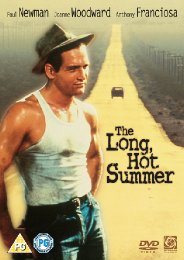
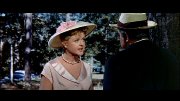
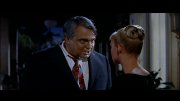
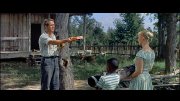
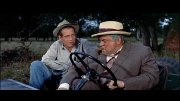
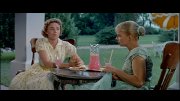
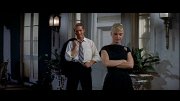
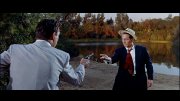
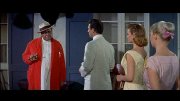
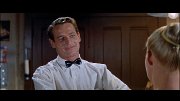
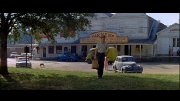






































Your Opinions and Comments
Be the first to post a comment!